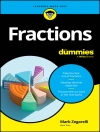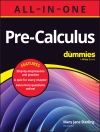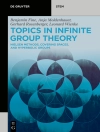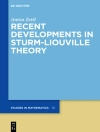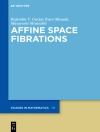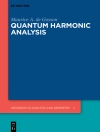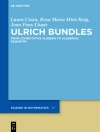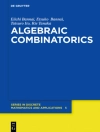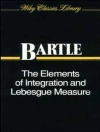The aim of this book is to furnish the reader with a rigorous and detailed exposition of the concept of control parametrization and time scaling transformation. It presents computational solution techniques for a special class of constrained optimal control problems as well as applications to some practical examples. The book may be considered an extension of the 1991 monograph A Unified Computational Approach Optimal Control Problems, by K.L. Teo, C.J. Goh, and K.H. Wong. This publication discusses the development of new theory and computational methods for solving various optimal control problems numerically and in a unified fashion. To keep the book accessible and uniform, it includes those results developed by the authors, their students, and their past and present collaborators. A brief review of methods that are not covered in this exposition, is also included.
Knowledge gained from this book may inspire advancement of new techniques to solve complex problemsthat arise in the future. This book is intended as reference for researchers in mathematics, engineering, and other sciences, graduate students and practitioners who apply optimal control methods in their work. It may be appropriate reading material for a graduate level seminar or as a text for a course in optimal control.Tabla de materias
1. Introduction.- 2. Unconstrained Optimization Techniques.- 3. Constrained Mathematical Programming.- 4. Optimization Problems Subject to Continuous Inequality Constraints.- 5. Discrete Time Optimal Control Problems.- 6. Elements of Optimal Control Theory.- 7. Gradient Formulae for Optimal Parameter Selection Problems.- 8. Control Parameterization for Canonical Optimal Control Problems.- 9. Optimal Control Problems with State and Control Constraints.-10. Time-Lag Optimal Control Problems.- 11. Feedback Control.- 12. On Some Special Classes of Stochastic Optimal Control Problems.- A.1. Elements of Mathematical Analysis.- A.2 Global Optimization via Filled Function Approach. A.3. Elements of Probability Theory – References.
Sobre el autor
Kok Lay Teo holds an emeritus position as John Curtin Distinguished Emeritus Professor, Curtin University, Australia; and Professor and Associate Dean (Research & International) in the School of Mathematical Sciences, Sunway University, Malaysia.
Bin Li is a Professor in the School of Aeronautics and Astronautics, Sichuan University, China.
Changjun Yu is an Associate Professor and the Vice Dean in the College of Sciences, Shanghai University, China.
Volker Rehbock is an Adjunct Associate Professor in the School of Electrical Engineering, Computing and Mathematical Sciences, Curtin University, Australia.


